
The dog was carrying a whole baguette crosswise in his teeth. He trotted off the beach at the head of the cove, through a scrim of palms, maneuvering it between a red flowering hibiscus and a beached outrigger canoe. We followed. The dog passed a low tin-roofed house, one of only six dwellings in this roadless, remote island valley. He skirted two shirtless young men untethering a horse from a breadfruit tree. Ink covered their chests and arms in black patterns that looked like manta rays and birds. The dog went on, jauntily carrying his baguette, passing a grapefruit tree that shaded a telephone booth. Labeled "Téléphone" and containing a coin-operated pay phone, the steel-and-glass cabin looked wildly out of place in this setting. But we were in the Marquesas, where I was learning not to be too surprised by anything.
The Polynesian name for the Marquesas is Te Fenua 'Enata, the Land of Men. This volcanic archipelago of 12 islands is located 900 miles northeast of Tahiti and 2,340 miles from anywhere else. Only six islands are populated. They are so remote that they were one of the last places on earth to be colonized. They are so rugged that before the French brought baguettes and téléphones, each of their many distinct, walled-in valleys had its own tribe. The island my wife, Kim, and I were on was Nuku Hiva, the largest in the chain. We planned to spend three nights here, then move on to the smaller islands of 'Ua Pou and Hiva Oa. This morning we had taken a boat in rough seas to get to the Hakaui Valley, where we hoped to hike up to a waterfall called Vaipō.
Maria, our guide for the day, glanced at the phone booth. "Do you want to call your grandmother?" she asked, her eyes sparkling. I was also learning that the Marquesan sense of humor is as relentless as the trade winds. Maria was a descendant of the valley's original tribe and was related to everyone who lived here.
この記事は Condé Nast Traveler US の January - February 2024 版に掲載されています。
7 日間の Magzter GOLD 無料トライアルを開始して、何千もの厳選されたプレミアム ストーリー、9,000 以上の雑誌や新聞にアクセスしてください。
すでに購読者です ? サインイン
この記事は Condé Nast Traveler US の January - February 2024 版に掲載されています。
7 日間の Magzter GOLD 無料トライアルを開始して、何千もの厳選されたプレミアム ストーリー、9,000 以上の雑誌や新聞にアクセスしてください。
すでに購読者です? サインイン
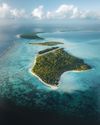
The Brando
THE STORY GOES that actor Marlon Brando first arrived on the 18-isle atoll of Tetiaroa by water-as in, he swam ashore.
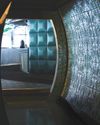
Jumeirah Burj AI Arab
IF EVER THERE WAS a hotel that could achieve landmark status, it is Dubai's Jumeirah Burj AI Arab, which stands alone on its own purpose-built island just off Jumeirah Beach.

Blackberry Farm
BLACKBERRY FARM LOOMS in the consciousness of many travelers as an almost mythical Southern sanctuary in the foothills of the Great Smoky Mountains, a place whose storybook perfection has to be experienced to be believed.
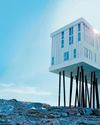
Fogo Island Inn
THIS 29-ROOM MODERN CLASSIC in Newfoundland is a model for place-specific hospitality, dreamed up by founder Zita Cobb and built by Shorefast, a nonprofit that supports economic and cultural resilience on the hotel's namesake island and runs artist residencies in four isolated, incredibly photogenic studios.
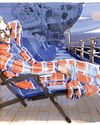
ALAN CUMMING on CROSSING THE ATLANTIC
I went on Cunard's Queen Mary 2 for the first time in 2011.

high life
Italy's unfussy Dolomites are a place of cheerful communities, where simple chalets and good food can almost outshine the skiing
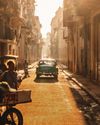
the possibility of an island
Cuba may be facing tough times, but the country's hoteliers, creators, and artists are forging a hopeful and beautiful way forward
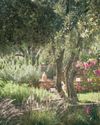
in full bloom
Over the past three years, hotelier Fabrizio Ruspoli has turned an old olive farm south of Marrakech into the High Atlas's most intoxicating garden retreat
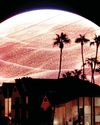
ALLIN
Fun has never been hard to come by in Las Vegas, but the arrival of pro sports, the Sphere, and lavish new hotels has upped the ante.
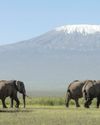
Forward March
Across Kenya, community initiatives are protecting the country's wildlife and environment. By Mary Holland